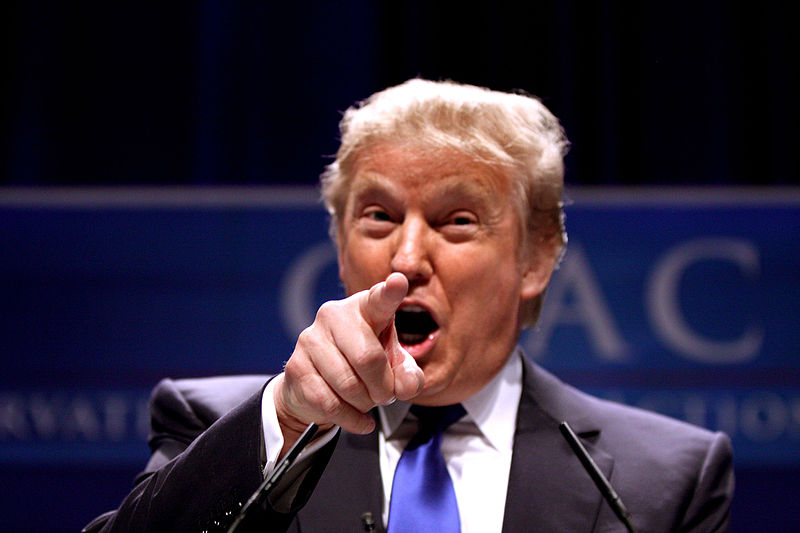With the election of Donald Trump for president of the United States, Hungarian Prime Minister Viktor Orbán for a moment thought he found a kindred spirit. Populism, anti-immigration rethorics, bashing PC culture, ties with Russia – at first glance, there already are some similarities between their approaches to politics. However, the yearned visit of Orbán to see Trump in Washington didn’t happen. What went wrong and what needs to be done to improve the U.S.-Hungarian relations?
Before Trump’s Presidency
Even before Trump took office, the U.S.-Hungarian relations had been marred. Although Orbán blamed Democrats for this situation, who were clearly not in favor of the Hungarian PM’s seemingly right-wing agenda, this is far from the truth.
One of the largest scandals between the two countries stemmed from a corruption case which the Hungarian authorities failed to address properly, and which hurt U.S. business interests. This led to a travel ban placed on several hungarian officials, who were denied entry to America. Although this happened during the Obama’s administration, U.S. business interests haven’t changed, nor have many of the experts in the U.S. Department of State, who are rather up-to-date with Hungarian issues. The quarrel ensuing form the scandal led even Republican senator, John McCain, to call Obán a “neo-fascist dictator.”
Although this was way too harsh, the senator alluded to certain problems with the Hungarian government. These problems still persist, an if Orbán wants to meet with Trump, some stark changes need to be made.
Rule of Law
Let us focus on recent developments, setting aside previous concerns with check and balances, and rampant cronyism. Three things stand out that need to be repaired: NGOs laws, legislation on the CEU, and media freedom.
Recently, Hungary has passed a legislation requiring foreign-funded NGOs to register separately, effectively branding them, to fit the government’s anti-Soros, anti-immigrant, and anti-West rethorics (the latter is against the allegedly overly soft and tolerant disposition of Western countries). Despite the fact that most NGOs in Hungary receive considerable funds from abroad, not all of them come from George Soros, and only a a small number of these has anything to do with immigration. Soros might not be in the good of books of the Republicans in the United States, however, disagreeing with someone is one thing, while abusing legislative power to put a halt to his support is another. Attacking the NGO culture, and a Hungarian-American businessman, regardless of his standing, is not a good idea if Orbán, indeed, wants to establish good relations with President Trump. No wonder that the Republican-led U.S. expressed concerns over it.
The same is true for the Hungarian government’s efforts to close down the prestigious Central European University, which also has ties with Soros. Although this was most likely just a red herring and a propaganda move, it was enough to bring about a wave of criticism from the U.S., yet again.
According to Freedom House, freedom of the press has declined in Hungary in the past years, as a result of which the country now is ranked as “partly free” in this category. Hungary is also the least democratic in the EU. The U.S. Embassy in Hungary recently criticized Hungary over the takeover of the media.
NATO and Russia
Despite all criticism, President Trump is not a great friend of Putin. A friendship with the United States doesn’t serve the purposes of the Kremlin, as Russia needs an enemy, to fit into Putin’s rethorics. If Hillary Clinton had won the election,s there would have been some scandals as well involving Russia, as the whole goal of Putin is to undermine whoever is in charge in America.
With Hungary, it is a different issue. Orbán and Trump have shared political and business interests. Hungary used the same rethorics to justify the anti-NGO law as Putin did, copied the Kremlin’s takeover of the media, among other things. With the construction of a Hungarian nuclear power plant with the money from a Russian loan (a deal which is teeming with corruption), Orbán and Putin are as close as the leader of Russia and the leader of an EU country can possibly be, and more.
It is a dangerous game, all the more so because Hungary, as in fact many countries, is failing to fulfill their financial obligation to NATO – an issue which Trump was quite outspoken about. Hungary simply needs to be more dedicated to the eastern alliance instead of helping Putin.
PM Orbán misjudged Trump in many things. The President, despite all criticism he receives and even deserves, still represents American interests, and the United States, in general, are not a one-man show. The opposition still has power, and Republicans can go against their own party. Not to mention the separation of powers. These aspects are losing on importance in Hungary.
Unfortunately, apart from the aforementioned points, Hungary has to overcome its relative importance to the U.S. Being a devoted ally, which is in the interest of both countries, a much more prosperous relationship could be cultivated. Orbán should consider balancing his rethorics (let’s face it, there is no chance he will abandon it), and at least don’t go against everything the U.S. stands for.



